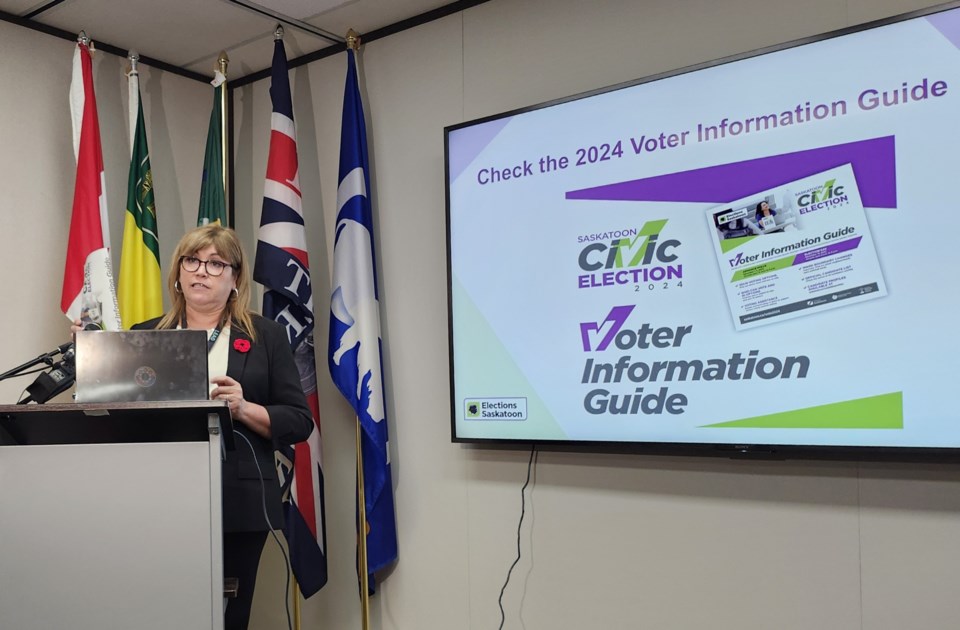SASKATOON — As the city shifts to election mode, Elections Saskatoon Officer Shellie Bryant warned that anyone who commits voter fraud on election day will be prosecuted as stated under the Election Act.
In a press event on Wednesday, Oct. 30, at City Hall, Bryant said this would be the first time since 1988 that they would have a list of all registered eligible voters in the city with the data coming from Elections Saskatoon based on the recent Provincial Elections.
They will use an e-poll book to identify registered voters upon presenting valid identification, like a driver’s license. Residents can check saskatoon.ca/voterinfo for more information on identification requirements and how to vote.
Those eligible to vote on Nov. 13, Wednesday, should be 18 years old on election day, have lived in Saskatchewan for six months straight months before election day, and must have resided or owned an accessible property in Saskatoon for three consecutive months preceding the day of the election.
“There are other ways to vote, even if you do not have an ID, so you can have somebody vouch for you at the poll. The voucher has to be another eligible voter, and that voucher can only vouch for one person at the poll unless it's a family member,” said Bryant.
“When a voter comes to the polling location, if they aren't on the voters' list, they are going to be declaring that they're 18 [years old], a Canadian citizen, resided for six months in Saskatchewan and three in Saskatoon. If they're bringing a voucher, that voucher also means signing a declaration that they are eligible and that the person that they are vouching for they know is an eligible voter.”
Signing the declaration is perjury, and committing voter fraud is one of the threats to the credibility of an election and breaching election security, which is a severe offence under the Election Act.
Bryant added that those who failed to register and are not on the voters’ registry can still do so and vote on election day, provided they bring an applicable ID to present to their staff in a polling location.
“We need one piece of photo ID with your current address. It would be probably your driver's license. That would be the only piece you would need. If the driver's license does not contain your current address or you don't have a driver's license, we would need two pieces of ID, one of which would identify your name and show your current address,” said Bryant.
“If you bring a passport that doesn't have your address but has your photo, you'll also need to bring, say, a utility bill or your SaskTel mobility bill or some bill. And you can even [present] an electronic bill, which you can bring on your phone to the polls.”
She said they expect a larger turnout of voters this time since the circumstances are different compared to 2020, where only about 27 per cent cast their votes due to restrictions during the COVID-19 pandemic. There are 194,244 registered voters at the close of the voter registry last Oct. 22, Tuesday, with 4,681 approved mail-in ballots.
“In 2020, an estimate of eligible voters came from e-health stats. It was based on population; it wasn't based on actual eligible voter data. For 2024, using the voters list we've got from Election Saskatchewan, it's more accurate now. It isn't easy to understand those numbers, given that 2020 was just an estimate. Now, ours is actual data that we have. I believe the turnout in 2020 was just over 27 per cent,” said Bryant.
“It's difficult to compare this election to the 2020 election given that we had many pandemic protocols with COVID-19. We had a snowstorm. It was just a whole different atmosphere in 2020. We're hoping that this election in 2024 can be the fresh start of what’s expected in the future.”




